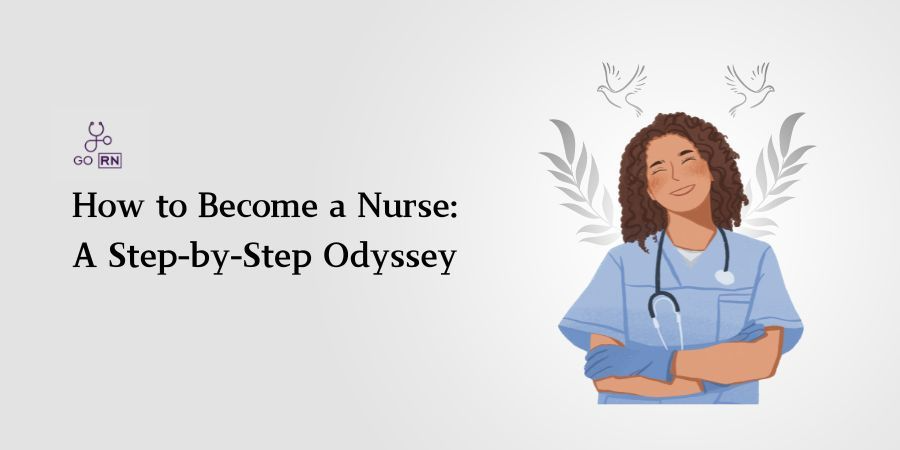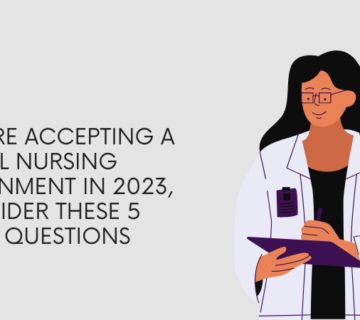The Beacon Call of Nursing
No matter the era, the call for nurses echoes across the corridors of healthcare, resonating with those drawn to a life of service and compassion. The journey to becoming a nurse is paved with dedication, learning, and the relentless pursuit of excellence. It’s a path that promises not just personal growth but the opportunity to touch lives and make tangible differences in communities.
A Step-by-Step Guide to Your Nursing Career
Choose Your Path Wisely
Nursing is a tapestry of roles, each distinct, each vital. From the hands on care of a Certified Nursing Assistant (CNA) to the strategic oversight of a Nurse Administrator, the starting point matters.
Reflect on where you see yourself: Is it at the bedside, offering comfort and care, or in the boardroom, shaping policies and leading teams? Each role serves a unique purpose, setting the stage for the journey ahead.
The Keystone: Your Nursing Education
Education is the keystone of your nursing career. Whether it’s a diploma for CNAs, an Associate Degree in Nursing (ADN) for aspiring RNs, or advanced degrees for those eyeing roles in nurse education or administration, the right program acts as your launchpad.
This step is where passion meets practicality, blending classroom knowledge with hands on clinical experience, essential for nurturing the skills you’ll rely on throughout your nursing career
The Pathways:
- CNA Diploma/Certificate: Your first step into nursing, offering an immediate taste of patient care.
- LPN/LVN Diploma/Certificate: A gateway to practical nursing, focusing on essential patient care and support.
- ADN: The fast track to becoming an RN, blending comprehensive nursing education with clinical experience.
- BSN: A deeper dive into nursing, preparing you for a broader range of opportunities and advancements.
- MSN/DNP: Advanced degrees for those aiming for specialized fields, leadership, or research roles in nursing.
Licensing: Your Passport to Nursing
Once education checks off, licensing is your next frontier. The National Council Licensure Examination (NCLEX) stands between you and your license, a rite of passage for every nurse. Passing the NCLEX, specific to your nursing level, grants you the credentials to practice, officially welcoming you into the nursing profession.
 Embark on Your Nursing Career
Embark on Your Nursing Career
With license in hand, the healthcare world is your oyster. From hospitals to home care, schools to specialized clinics, opportunities abound. Your clinical experiences during education serve as a compass, guiding you towards settings that resonate with your passion and skills.
The Pursuit of Excellence: Continuing Education
Nursing is an ever-evolving field, demanding continuous learning and adaptation. Continuing education, a requirement for maintaining your license, also keeps you at the forefront of advancements, ensuring you remain a competent and compassionate caregiver.
Advancement Through Specialization
Advancing in nursing often means specializing. Whether it’s in pediatrics, oncology, or another field, specialization can open new doors, offering paths to roles like Nurse Practitioner (NP), Certified Nurse Midwife (CNM), or Nurse Anesthetist (CNA), each with its own set of educational and licensing requirements.
Nursing Levels Explained: From CNA to APRN
The levels of nursing reflect the diversity and depth of the profession, each with its educational pathways, responsibilities, and opportunities for impact:
- CNA: The foundational level, focused on direct patient care and support.
- LPN/LVN: Provides basic nursing care under the supervision of RNs and doctors.
- RN: The backbone of clinical care, offering comprehensive patient care and support.
- APRN: Advanced practitioners who specialize in specific areas of healthcare, often taking on roles in leadership, education, and specialized clinical practice.
Frequently Asked Questions
Q: How long does it take to become a nurse?
A: It varies by the level of nursing you pursue—from a few months for a CNA to several years for advanced practice roles.
Q: Can I work while studying to be a nurse?
A: Yes, many programs offer flexible schedules or part-time options to accommodate working students.
Q: Is nursing a rewarding career?
A: Absolutely. Nursing offers the unique opportunity to make a significant impact on individuals’ health and wellbeing, providing both challenges and profound satisfaction.
In Conclusion
The journey to becoming a nurse is a path of growth, challenge, and immense reward. It’s a career that demands the best of you but offers even more in return.
Whether you’re drawn to the hands on care of patient support or the strategic impact of leadership, nursing welcomes you with open arms. So, take that first step, embark on your education, and join the ranks of those dedicated to the healing and betterment of our world.
 For more insights and guidance on navigating your nursing career, keep exploring and never hesitate to seek out mentors and professional networks. The world of nursing is vast, and its doors are open wide, waiting for you to step through.
For more insights and guidance on navigating your nursing career, keep exploring and never hesitate to seek out mentors and professional networks. The world of nursing is vast, and its doors are open wide, waiting for you to step through.

